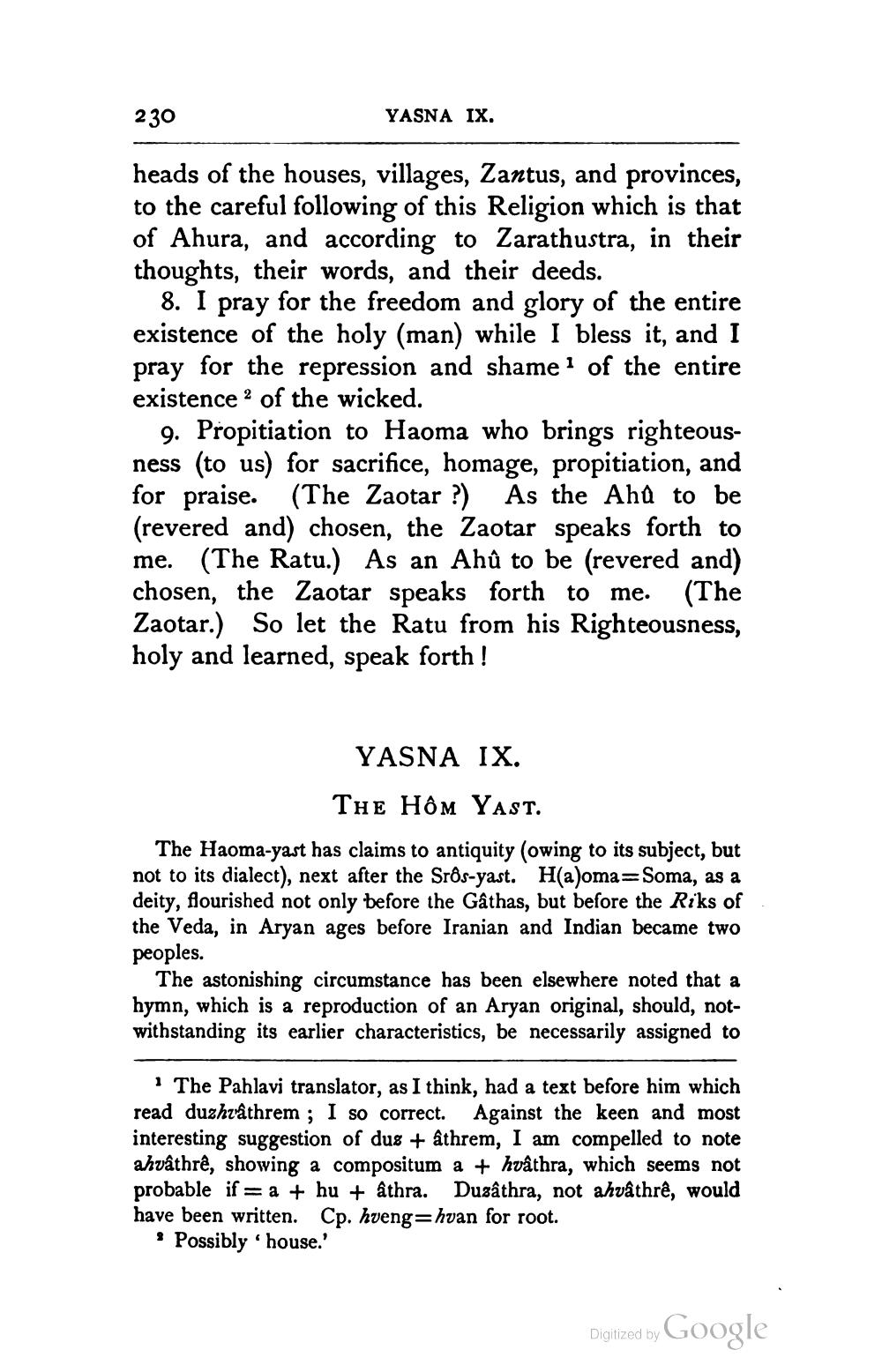________________
230
YASNA IX.
heads of the houses, villages, Zantus, and provinces, to the careful following of this Religion which is that of Ahura, and according to Zarathustra, in their thoughts, their words, and their deeds.
8. I pray for the freedom and glory of the entire existence of the holy (man) while I bless it, and I pray for the repression and shame 1 of the entire existence 2 of the wicked.
9. Propitiation to Haoma who brings righteousness (to us) for sacrifice, homage, propitiation, and for praise. (The Zaotar ?) As the Ahd to be (revered and) chosen, the Zaotar speaks forth to me. (The Ratu.) As an Ahû to be (revered and) chosen, the Zaotar speaks forth to me. (The Zaotar.) So let the Ratu from his Righteousness, holy and learned, speak forth !
YASNA IX.
THE HỞ M YAST. The Haoma-yast has claims to antiquity (owing to its subject, but not to its dialect), next after the Srôs-yast. H(a)oma=Soma, as a deity, flourished not only before the Gathas, but before the Riks of the Veda, in Aryan ages before Iranian and Indian became two peoples.
The astonishing circumstance has been elsewhere noted that a hymn, which is a reproduction of an Aryan original, should, notwithstanding its earlier characteristics, be necessarily assigned to
1 The Pahlavi translator, as I think, had a text before him which read duzhràthrem ; I so correct. Against the keen and most interesting suggestion of dus + athrem, I am compelled to note ahvathre, showing a compositum a + hvathra, which seems not probable if = a + hu + athra. Dusâthra, not ahvathre, would have been written. Cp. hveng=hvan for root.
Possibly house.'
Digitized by
Digitized by Google




